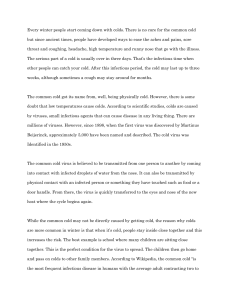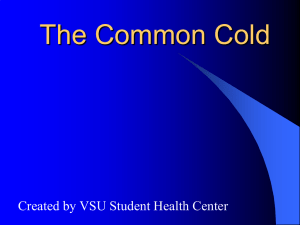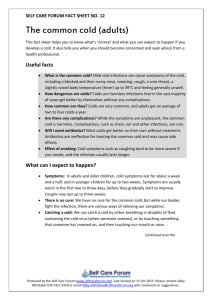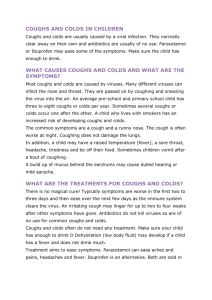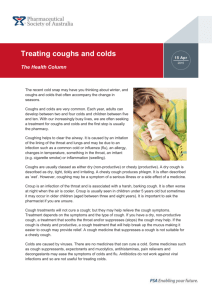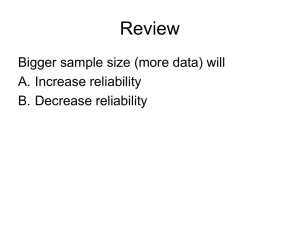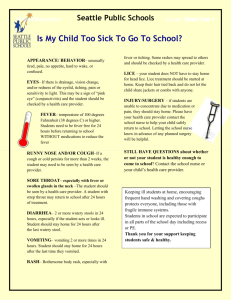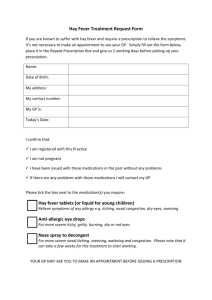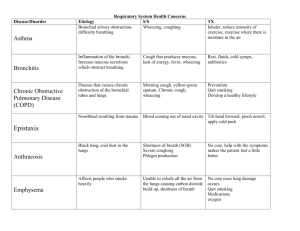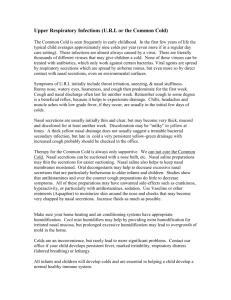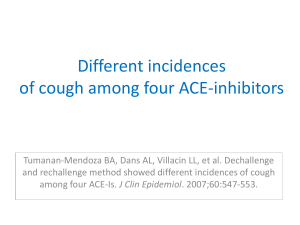Upper Respiratory Infections and Cough
advertisement
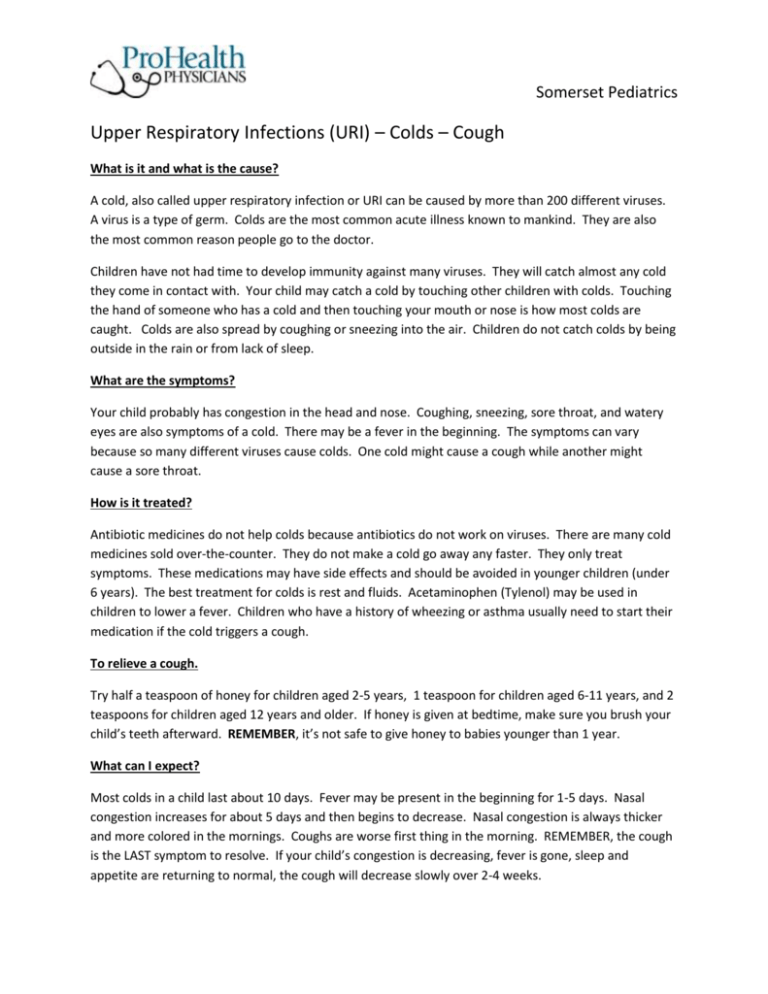
Somerset Pediatrics Upper Respiratory Infections (URI) – Colds – Cough What is it and what is the cause? A cold, also called upper respiratory infection or URI can be caused by more than 200 different viruses. A virus is a type of germ. Colds are the most common acute illness known to mankind. They are also the most common reason people go to the doctor. Children have not had time to develop immunity against many viruses. They will catch almost any cold they come in contact with. Your child may catch a cold by touching other children with colds. Touching the hand of someone who has a cold and then touching your mouth or nose is how most colds are caught. Colds are also spread by coughing or sneezing into the air. Children do not catch colds by being outside in the rain or from lack of sleep. What are the symptoms? Your child probably has congestion in the head and nose. Coughing, sneezing, sore throat, and watery eyes are also symptoms of a cold. There may be a fever in the beginning. The symptoms can vary because so many different viruses cause colds. One cold might cause a cough while another might cause a sore throat. How is it treated? Antibiotic medicines do not help colds because antibiotics do not work on viruses. There are many cold medicines sold over-the-counter. They do not make a cold go away any faster. They only treat symptoms. These medications may have side effects and should be avoided in younger children (under 6 years). The best treatment for colds is rest and fluids. Acetaminophen (Tylenol) may be used in children to lower a fever. Children who have a history of wheezing or asthma usually need to start their medication if the cold triggers a cough. To relieve a cough. Try half a teaspoon of honey for children aged 2-5 years, 1 teaspoon for children aged 6-11 years, and 2 teaspoons for children aged 12 years and older. If honey is given at bedtime, make sure you brush your child’s teeth afterward. REMEMBER, it’s not safe to give honey to babies younger than 1 year. What can I expect? Most colds in a child last about 10 days. Fever may be present in the beginning for 1-5 days. Nasal congestion increases for about 5 days and then begins to decrease. Nasal congestion is always thicker and more colored in the mornings. Coughs are worse first thing in the morning. REMEMBER, the cough is the LAST symptom to resolve. If your child’s congestion is decreasing, fever is gone, sleep and appetite are returning to normal, the cough will decrease slowly over 2-4 weeks. Somerset Pediatrics
